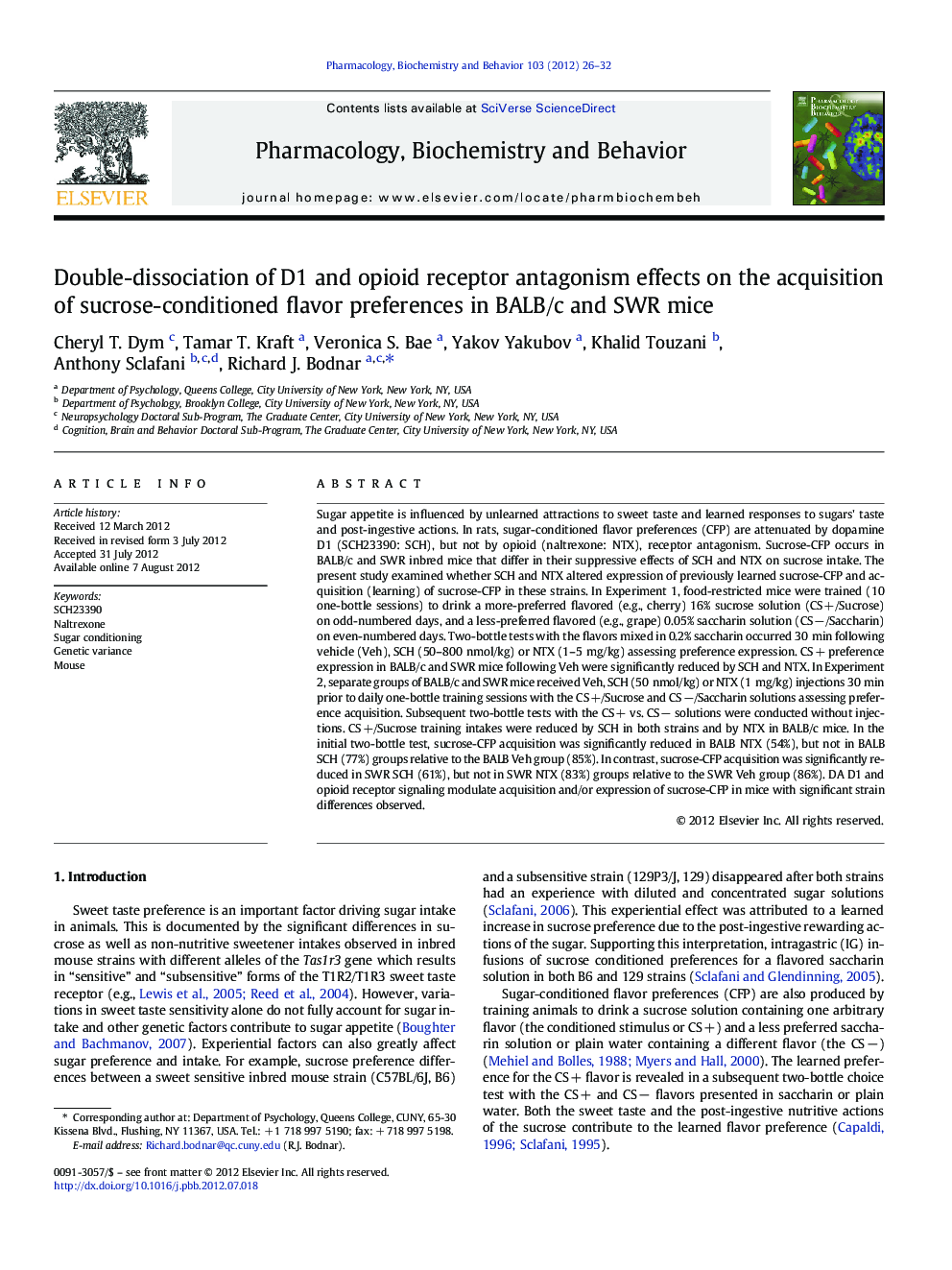| Article ID | Journal | Published Year | Pages | File Type |
|---|---|---|---|---|
| 2013068 | Pharmacology Biochemistry and Behavior | 2012 | 7 Pages |
Sugar appetite is influenced by unlearned attractions to sweet taste and learned responses to sugars' taste and post-ingestive actions. In rats, sugar-conditioned flavor preferences (CFP) are attenuated by dopamine D1 (SCH23390: SCH), but not by opioid (naltrexone: NTX), receptor antagonism. Sucrose-CFP occurs in BALB/c and SWR inbred mice that differ in their suppressive effects of SCH and NTX on sucrose intake. The present study examined whether SCH and NTX altered expression of previously learned sucrose-CFP and acquisition (learning) of sucrose-CFP in these strains. In Experiment 1, food-restricted mice were trained (10 one-bottle sessions) to drink a more-preferred flavored (e.g., cherry) 16% sucrose solution (CS +/Sucrose) on odd-numbered days, and a less-preferred flavored (e.g., grape) 0.05% saccharin solution (CS −/Saccharin) on even-numbered days. Two-bottle tests with the flavors mixed in 0.2% saccharin occurred 30 min following vehicle (Veh), SCH (50–800 nmol/kg) or NTX (1–5 mg/kg) assessing preference expression. CS + preference expression in BALB/c and SWR mice following Veh were significantly reduced by SCH and NTX. In Experiment 2, separate groups of BALB/c and SWR mice received Veh, SCH (50 nmol/kg) or NTX (1 mg/kg) injections 30 min prior to daily one-bottle training sessions with the CS +/Sucrose and CS −/Saccharin solutions assessing preference acquisition. Subsequent two-bottle tests with the CS + vs. CS − solutions were conducted without injections. CS +/Sucrose training intakes were reduced by SCH in both strains and by NTX in BALB/c mice. In the initial two-bottle test, sucrose-CFP acquisition was significantly reduced in BALB NTX (54%), but not in BALB SCH (77%) groups relative to the BALB Veh group (85%). In contrast, sucrose-CFP acquisition was significantly reduced in SWR SCH (61%), but not in SWR NTX (83%) groups relative to the SWR Veh group (86%). DA D1 and opioid receptor signaling modulate acquisition and/or expression of sucrose-CFP in mice with significant strain differences observed.
► Dopamine D1 antagonism reduced sucrose preference expression in BALB and SWR mice. ► Opioid antagonism reduced sucrose preference expression in BALB and SWR mice. ► Only opioid antagonism reduced sucrose preference acquisition in BALB mice. ► Only dopamine D1 antagonism reduced sucrose preference acquisition in SWR mice. ► Murine genetic background influences the pharmacology of sucrose preferences.
